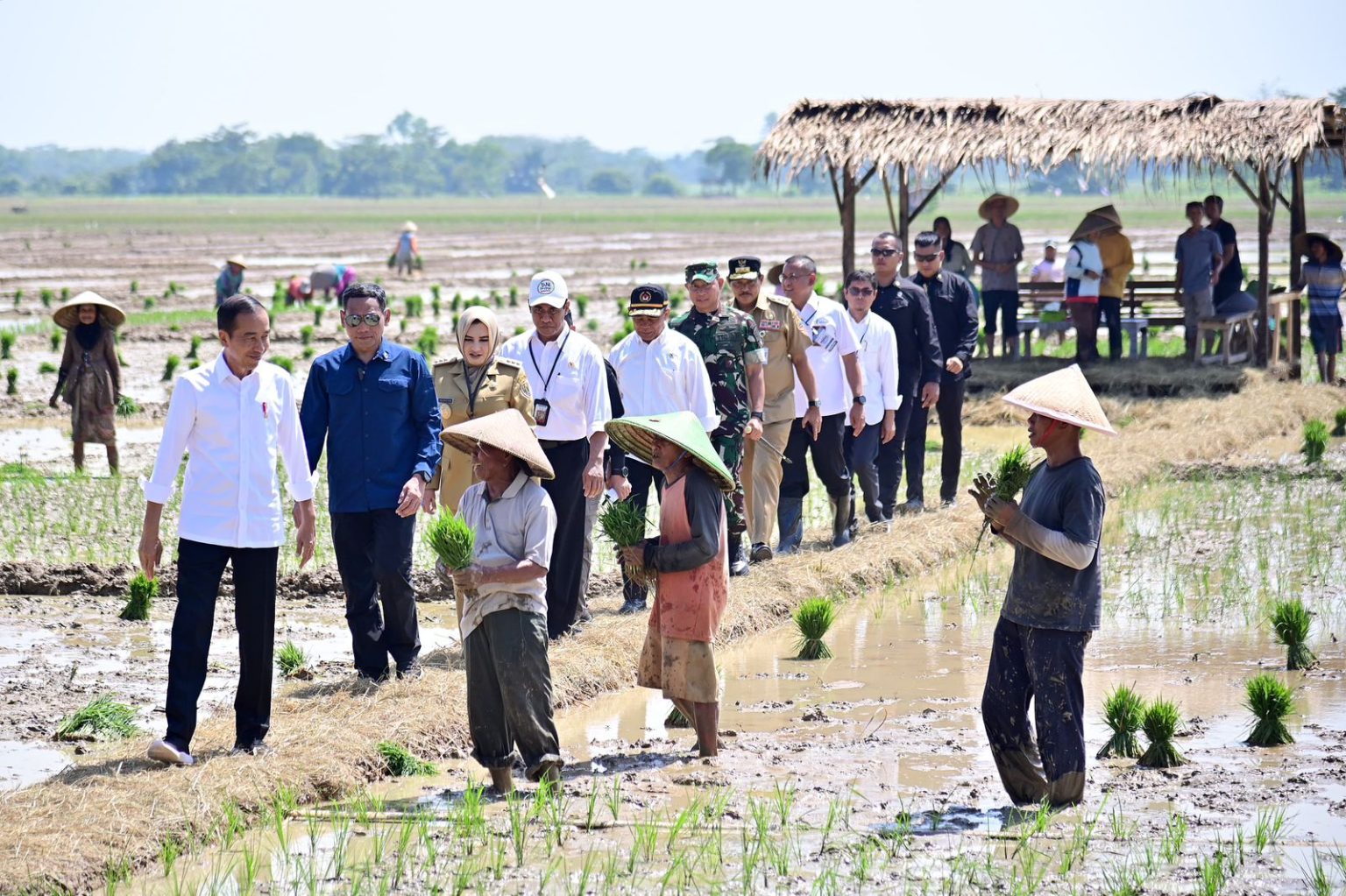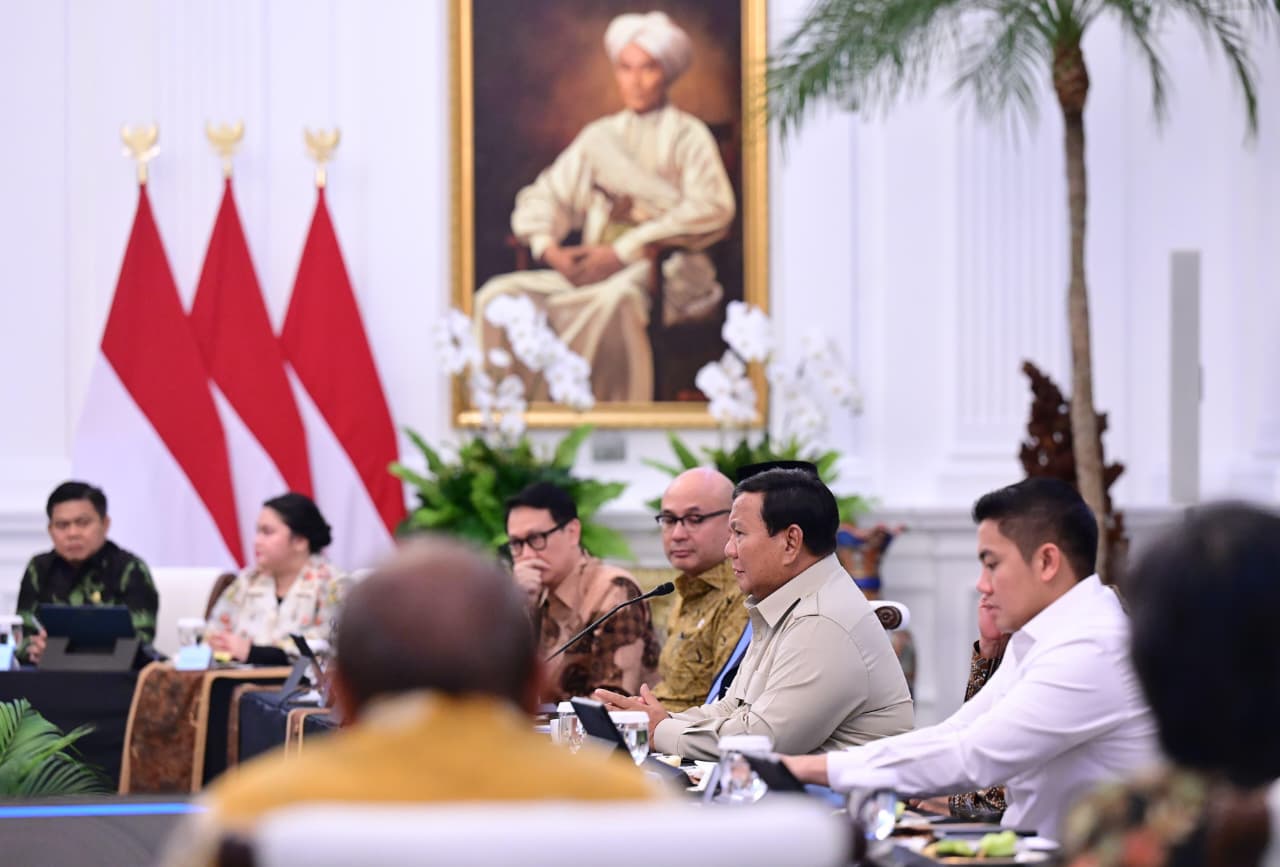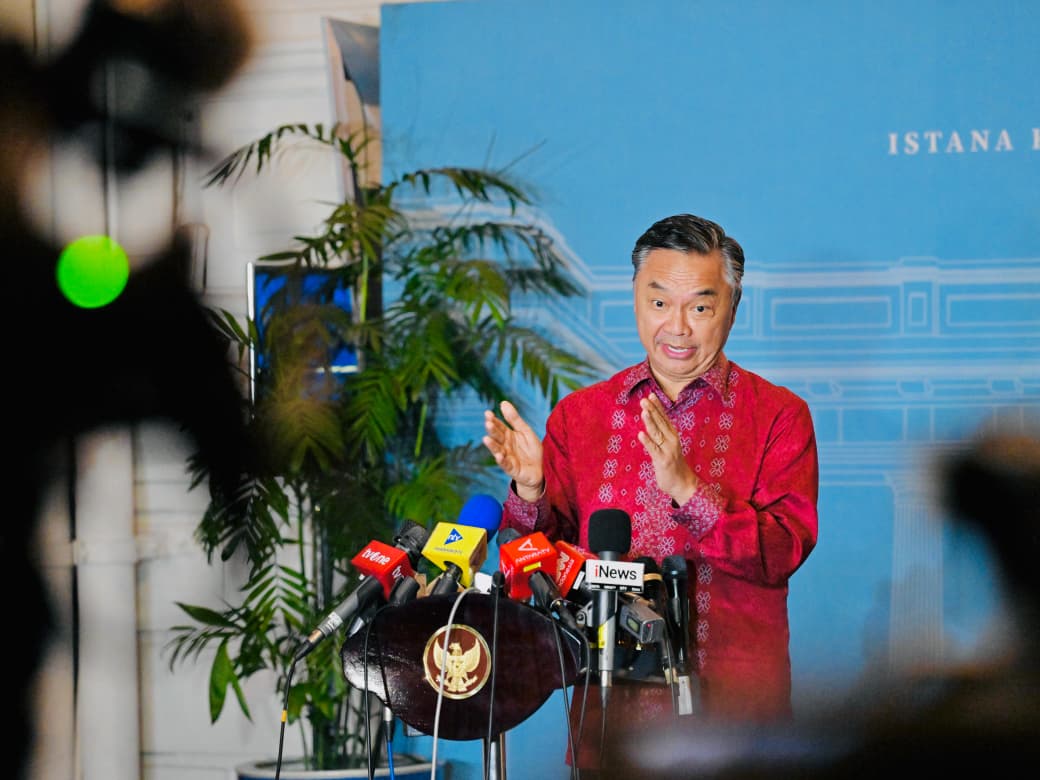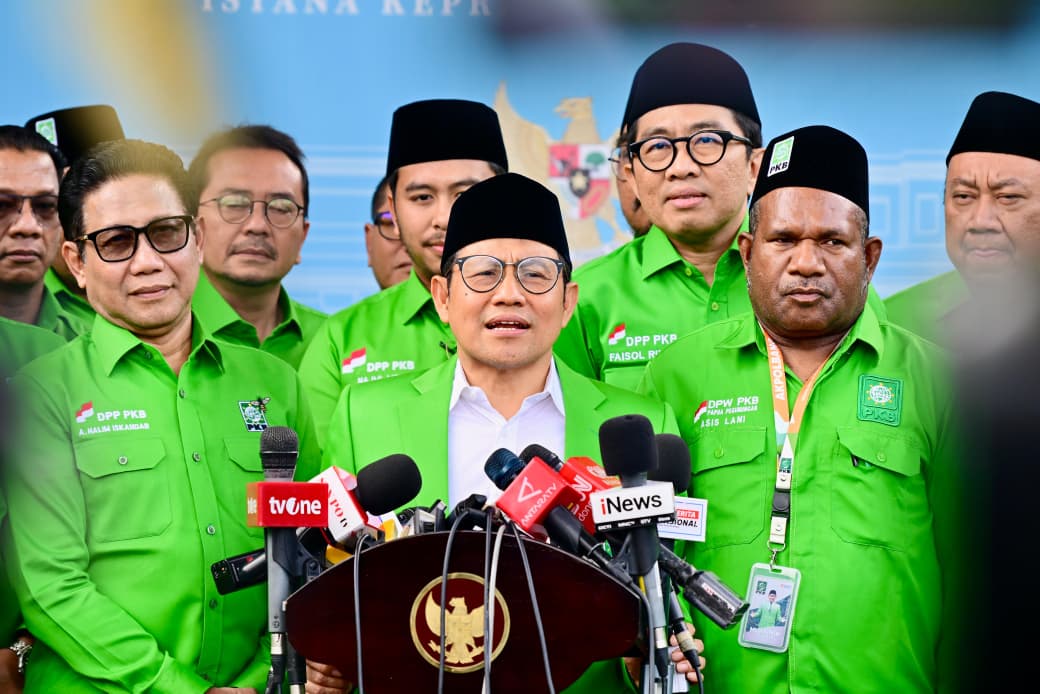President Jokowi Encourages Farmers to Start Plant Rice as Rainy Season Arrives

President Jokowi visits rice planting and has a discussion with farmers at Kesesi district, Pekalongan regency, Central Java province, Wednesday (12/13). (Photo by: BPMI)
President Joko “Jokowi” Widodo arrived at Ahmad Yani army air base in Semarang city to start a working visit to Central Java province on Wednesday (12/13).
His first destination is Pekalongan regency to inspect rice planting in Kesesi district.
In his statement after the inspection, President Jokowi encouraged farmers to immediately start planting rice because the rainy season has arrived.
“Since the rainy season has started in many provinces, I want to encourage farmers to immediately start planting rice. Hopefully in March or April we will start harvesting,” said the President.
He went on to say that until now the supply of fertilizer is still sufficient. According to him, Minister of Agriculture is also ready to resolve the problem of fertilizer shortages if occur.
“I asked the farmers about fertilizer supply and they say the supply is sufficient. Minister of Agriculture has also agreed to resolve any issue that may occur especially in January when the demand is high,” he explained.
The President also explained that the Government has also simplified procedures for farmers who need subsidized fertilizer without having to use a farmer’s card. According to him, this applies in a number of certain areas.
“Previously, you had to use a farmer’s card for purchasing subsidized fertilizer. Now you can use ID card only. It’s much simpler but only applies in certain places, not all,” he said, adding that those who don’t have a farmer’s card can use their ID card while their farmer’s card get fixed.
Apart from that, President Jokowi also emphasized that the harvest target in the country must increase considering that previously the figure had decreased.
“We have to increase the target because previously the figure was decreased due to El Nino,” he said.
Regarding national rice reserves, the President said that the rice stock in national logistic company Bulog was still in the safe category.
“The stock at the Bulog last morning I checked was 1.4 million tons,” he said. (BPMI/UN) (EST/EP)








